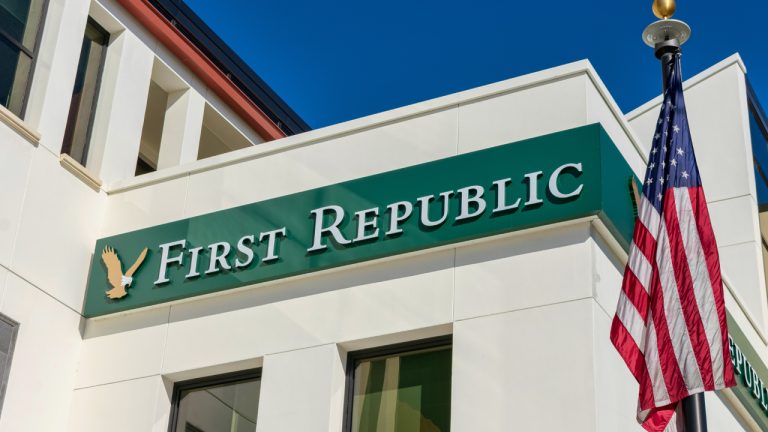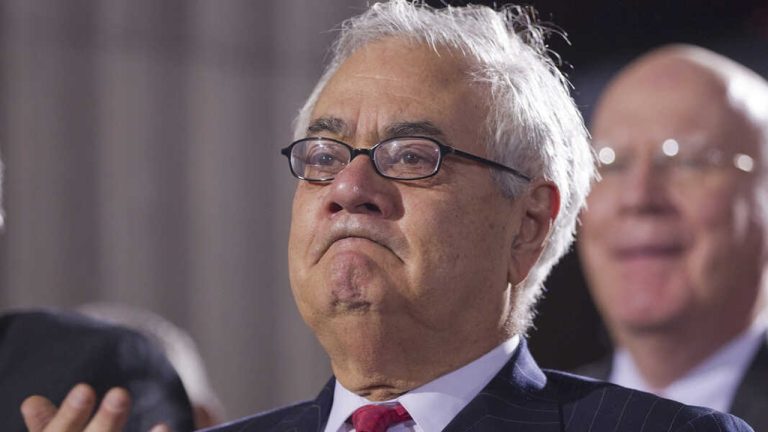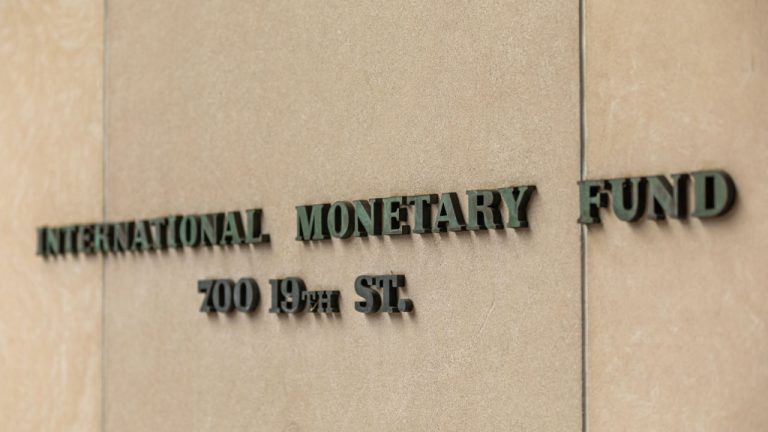 Sources have revealed that U.S. government officials are in talks to rescue First Republic Bank, a struggling financial institution. The discussions involve the U.S. Treasury, the Federal Deposit Insurance Corporation (FDIC), and the Federal Reserve, according to reports on Friday. Private-Sector Deal Preferred as U.S. Government Officials Discuss First Republic Bank Rescue Efforts Market observers […]
Sources have revealed that U.S. government officials are in talks to rescue First Republic Bank, a struggling financial institution. The discussions involve the U.S. Treasury, the Federal Deposit Insurance Corporation (FDIC), and the Federal Reserve, according to reports on Friday. Private-Sector Deal Preferred as U.S. Government Officials Discuss First Republic Bank Rescue Efforts Market observers […]
The collapse of FTX led to a similar exodus from centralized exchanges, as users worried they may lose access to funds during crises.
The collapse of Silicon Valley Bank saw investors loading their bags with USD Coin (USDC), along with an exodus of funds from centralized exchanges (CEXs) to decentralized exchanges (DEXs).
Outflows from centralized exchanges often spike when the markets are in turmoil, blockchain analysis firm Chainalysis said in a March 16 blog post, as users are likely worried about losing access to their funds when exchanges go down.

The Chainalysis data shows that hourly outflows from CEXs to DEXs spiked to over $300 million on March 11, soon after SVB was shut down by a Californiaregulator.
A similar phenomenon was observed during the collapse of cryptocurrency exchange FTX last year, amid fears that the contagion could spread to other crypto firms.
However, data from the blockchain analytics platform Token Terminal suggests that the surge in daily trading volumes for large DEXs was short-lived in both cases.

USDC was identified as one of the top assets being moved to DEXs, which Chainalysis said was unsurprising given that USDC depegged after stablecoin issuer Circle announced it had $3.3 billion in reserves stuck on SVB, prompting many CEXs like Coinbase to temporarily halt USDC trading.
Related: Circle clears ‘substantially all’ minting and redemption backlog for USDC
What was surprising, Chainalysis noted, was the surge in USDC acquisitions on large DEXs such as Curve3pool and Uniswap. “Several assets saw large spikes in user acquisition, but none more than USDC,” the blockchain analysis firm wrote.

Chainalysis theorized that this was due to confidence in the stablecoin, with some crypto users loading up on USDC while it was relatively cheap and betting that it would regain its peg — which it did on March 13 according to CoinMarketCap.

 Barney Frank, a former member of the U.S. House of Representatives from Massachusetts and leading co-sponsor of the 2010 Dodd-Frank Act, discussed his opinion on the recent failure of Signature Bank. In an interview, Frank stated that he believes regulators aimed to “send a very strong anti-crypto message.” Frank, who also serves as a Signature […]
Barney Frank, a former member of the U.S. House of Representatives from Massachusetts and leading co-sponsor of the 2010 Dodd-Frank Act, discussed his opinion on the recent failure of Signature Bank. In an interview, Frank stated that he believes regulators aimed to “send a very strong anti-crypto message.” Frank, who also serves as a Signature […]
The crypto-friendly Signature Bank was a key partner for many crypto firms, some which have been voluntarily disclosing their exposure to the recently closed firm.
Crypto exchange Coinbase, crypto lender Celsius and stablecoin issuer Paxos are among the crypto firms with funds reportedly tied up with the now-shuttered Signature Bank.
The crypto-friendly Signature Bank was shut down by New York regulators on March 12 in conjunction with the United States Federal Deposit Insurance Corporation to “protect the U.S. economy,” as they claimed the bank posed a “systemic risk.”
Crypto exchange Coinbase tweeted on March 12 that it had around $240 million in corporate funds at Signature that it expected would be fully recovered.
As of close of business Friday March 10 Coinbase had an approximately $240m balance in corporate cash at Signature. As stated by the FDIC, we expect to fully recover these funds. https://t.co/XY5L7m4RMs
— Coinbase (@coinbase) March 12, 2023
Stablecoin issuer and crypto firm Paxos also came forward, tweeting it had $250 million held at the bank but added it held private insurance that covers the amount not covered by the standard FDIC insurance of $250,000 per depositor.
Paxos currently holds $250M at Signature Bank and holds private deposit insurance well in excess of our cash balance and FDIC per-account limits. Seeking private deposit insurance is part of our conservative approach to managing customer assets exceeding FDIC insurance limits.
— Paxos (@PaxosGlobal) March 12, 2023
The Celsius Official Committee of Unsecured Creditors, a body that represents the interests of account holders at the bankrupt crypto lender Celsius, added that Signature Bank “held some of its funds” but did not disclose the amount.
Today the US government announced the closure of Signature Bank where Celsius held some of its funds. All depositors will be made whole, per US Gov. Celsius and the UCC are evaluating the situation and will provide further updates. Announcement here: https://t.co/v5GSvTL7JY
— Celsius Official Committee of Unsecured Creditors (@CelsiusUcc) March 12, 2023
It added that “all depositors will be made whole.”
As Signature Bank serviced so many firms in the crypto industry, those firms with no exposure equally came forward to quell fears about their related exposures.
Robbie Ferguson, co-founder of Web3 game development platform Immutable X, and Mitch Liu, co-founder of the media-focused Theta Network blockchain, separately tweeted that both of their respective companies had no exposure to Signature.
Related: Biden vows to hold those responsible for SVB, Signature collapse
Crypto exchange Crypto.com also reported in a March 12 tweet by CEO Kris Marszalek that it had no funds in the bank
https://t.co/pFc4Pz9nFR has $0 exposure to Signature Bank. https://t.co/TG2h7HyXE9
— Kris | Crypto.com (@kris) March 13, 2023
The chief technology officer of stablecoin firm Tether, Paolo Ardoino, similarly tweeted Tether’s non-exposure to Signature Bank.
#tether doesn't have any exposure to Signature Bank.
— Paolo Ardoino (@paoloardoino) March 12, 2023
The announcement of Signature Bank’s forced closure aligned with other banking-related announcements by U.S. regulators.
The Federal Reserve said the FDIC was approved to take actions to protect depositors at Silicon Valley Bank, a tech-startup-focused bank that experienced liquidity issues due to a bank run that spread contagion to the crypto sector.
The Fed also announced a $25 billion program to ensure ample liquidity for banks to cover the needs of their customers during times of turbulence.
 Silicon Valley Bank (SVB) has become the center of attention after its collapse prompted the U.S. Federal Deposit Insurance Corporation (FDIC) to shut the bank down on Friday. It was the largest U.S. bank failure since 2008, and various alleged catalysts have been pointed to. Some believe venture capitalists caused a bank run, while others […]
Silicon Valley Bank (SVB) has become the center of attention after its collapse prompted the U.S. Federal Deposit Insurance Corporation (FDIC) to shut the bank down on Friday. It was the largest U.S. bank failure since 2008, and various alleged catalysts have been pointed to. Some believe venture capitalists caused a bank run, while others […] According to reports and a filing that shows its name struck off the U.K. companies’ register list, Blockchain.com is sunsetting its Blockchain.com Asset Management subsidiary. A company spokesperson cited deteriorating “macroeconomic conditions” and the “crypto winter” as some of the reasons for halting the institutional business. The Impact of Crypto Winter on the Cryptocurrency Industry […]
According to reports and a filing that shows its name struck off the U.K. companies’ register list, Blockchain.com is sunsetting its Blockchain.com Asset Management subsidiary. A company spokesperson cited deteriorating “macroeconomic conditions” and the “crypto winter” as some of the reasons for halting the institutional business. The Impact of Crypto Winter on the Cryptocurrency Industry […]
Commodity Futures Trading Commission Kristin Johnson wants to protect customers in a way that reduces the risk of future crises.
Commodity Futures Trading Commission (CFTC) Commissioner Kristin Johnson has urged Congress to adopt legislation that "closes the current gap in the oversight of crypto spot markets."
During a speech at a digital assets conference at Duke University on Jan. 21, Johnson proposed a number of amendments that would enable the CFTC to conduct “effective due diligence” on businesses, including crypto firms, that want to acquire CFTC-regulated entities.
The commissioner also wants expanded powers for the commodities regulator to enhance customer protection, prevent liquidity crises and mitigate conflicts of interest.

One of these potential changes would be to give the commodities regulator new powers to investigate any business that wants to purchase 10% or more of a CFTC-registered exchange or clearinghouse.
Johnson highlighted the example of derivatives exchange LedgerX, which became a subsidiary of FTX on Aug. 31, 2021 and is now wrapped up in the crypto exchange’s collapse.
The commissioner notes that the regulator currently has no ability to conduct due diligence on whichever firm buys the business and is merely a passenger as the exchange goes through the sales process.
Johnson also addressed co-mingling of customer funds, which was one of the more egregious accusations levied at FTX following its collapse — calling for regulation that formalizes the obligation of crypto firms to segregate customer funds.
Related: FTX VCs liable to ‘serious questions’ around due diligence — CFTC Commissioner
Another gap pointed out by Johnson was in risk management procedures, pointing to the contagion that has continued to spread after major crypto company collapses, such as FTX:
“Interconnectedness among crypto-firms amplified by fragile or non-existent risk management, corporate governance failures, and conflicts of interests at individual firms fuels the likelihood of crises.”
The commissioner suggested that current “frameworks such as anti-trust law and regulation may prove too limited in scope” in increasingly diverse markets and is advocating for “tailored and effective governance, and risk management controls.”
 An International Monetary Fund (IMF) division chief and deputy managing director are calling for more action to be taken in the regulatory aspect to avoid crypto’s ups and downs affecting banks and traditional financial institutions. Nobuyasu Sugimoto, deputy division chief of the financial supervision and regulation division of the IMF, and Bo Li, deputy managing […]
An International Monetary Fund (IMF) division chief and deputy managing director are calling for more action to be taken in the regulatory aspect to avoid crypto’s ups and downs affecting banks and traditional financial institutions. Nobuyasu Sugimoto, deputy division chief of the financial supervision and regulation division of the IMF, and Bo Li, deputy managing […] Following reports that the crypto payments firm Wyre was shutting down operations, CEO Ioannis Giannaros offered a contradicting story, stating that the firm was merely “scaling back.” Wyre has now announced that it is “modifying” its withdrawal policy, citing the crypto industry downturn and the “macroeconomic climate” as factors that have affected the company. On […]
Following reports that the crypto payments firm Wyre was shutting down operations, CEO Ioannis Giannaros offered a contradicting story, stating that the firm was merely “scaling back.” Wyre has now announced that it is “modifying” its withdrawal policy, citing the crypto industry downturn and the “macroeconomic climate” as factors that have affected the company. On […]
The Office of the Comptroller of the Currency (OCC) said the digital asset industry was maturing but was “not yet robust” in its risk management.
A United States banking industry regulator warned banks of the “emerging risks” of cryptocurrencies saying the sector should take a “cautious approach” and seek permission in some cases when engaging with crypto or crypto firms.
Citing “dislocations” in the crypto market over 2022 the Office of the Comptroller of the Currency (OCC) highlighted what it said were “several key risks” of crypto in its Dec. 8 Semiannual Risk Perspective for Fall 2022 report.
Its three main concerns are that “stablecoins may be unstable,” the crypto industry lacks mature risk management practices and has a high risk of contagion due to the “high degree of interconnectedness.”
Check it out! The @USOCC reported the key issues facing the federal banking system in its Semiannual Risk Perspective for Fall 2022. Read more at https://t.co/CcfoiQM8xe pic.twitter.com/0WnAt5psXU
— OCC (@USOCC) December 8, 2022
The space’s lack of “consistent or comprehensive regulation” and the volatility of crypto along with the increased range of firms offering “bank-like products and services” using crypto and tokenized assets were also cited as concerns, which the OCC believes raises questions regarding financial stability.
The depeg and collapse of the TerraClassicUSD (USTC) algorithmic stablecoin in May was given as an example of stablecoins’ “run risk,” and how asset-backed stablecoins also saw minor depeg events as a result.
It highlighted stablecoin backings have “incrementally evolved” since, but believes most “remain susceptible to run risk.”
Discussing risk management the OCC said practices at crypto firms were maturing but are “not yet robust” with firms appearing “unprepared for the stresses and surprises” over the past year that saw losses for millions of investors, it added:
“Hacks and outages are frequent, and fraud and scams remain high throughout the industry. In some cases, ownership rights, custody arrangements, and financial representations have created a high degree of confusion.”
The crypto market over 2022 also revealed the industry’s “interconnectedness [...] through a variety of opaque lending and investing arrangements” according to the OCC.
Related: US lawmakers question federal regulators on banks' ties to crypto firms
It remarked crypto participants “may be engaging in highly leveraged trading” which resulted in the noted contagion risk.
In its advice to banks, the OCC said institutions considering engaging with crypto or crypto companies “should take a careful and incremental approach.”
The OCC advised national banks that crypto-related plans should be discussed “with their supervisory office” before they engage in any activities as some potentially require permission.
Crypto companies have moved to improve transparency in the wake of the bankruptcy of FTX with many exchanges introducing proof-of-reserves so users can verify crypto backings along with some conducting public third-party audits.